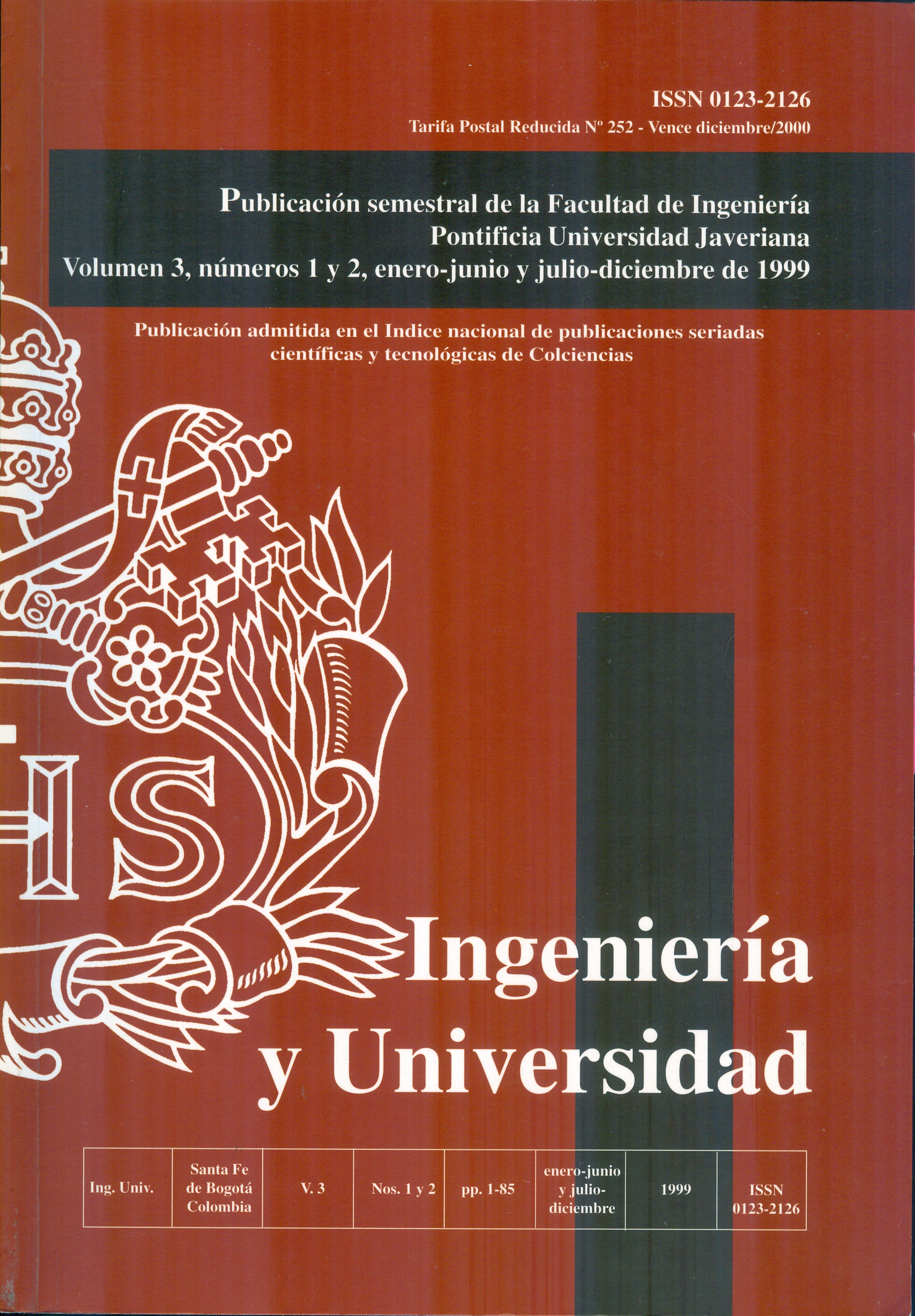Resumen
En este artículo se muestra un procedimiento geométrico determinístico, la metodología fractal-multifractal (FM) [Puente, 1992J, dirigido a la representación holística de series de tiempo geofísicas como proyecciones desde funciones de interpolación fractales produciendo un conjunto de 1/f3 series multifractales que incluyen tanto señales "caóticas" como "estocásticas", Dicho resultado inesperado y aparentemente contradictorio, dado el determinismo intrínseco de la representación, sugiere que el concepto de las proyecciones podría ser útil para estudiar la complejidad de un variado número de eventos naturales. Se presentan los ejemplos de la aproximación FM que evidencian dicho comportamiento junto con un breve repaso de los conceptos básicos del análisis no lineal de series de tiempo.
Avison, D.E., and Fitzgerald, B. Information Systems Development: Methodologies, Technologies, Tools. 2nd Ed. London: MacGraw-Hill, 1992.
Avison, D.E.; and Wood-Harper, AT. Multiview: An Exploration in Information Systems Development, Oxford: Blackwell Scientific Publications, 1990.
Bloornfield, B.P., and Best, A Management Consultants: Systems Development, Power, and Translation of Problems. In: Sociological Review, 40, 1992,533-560.
Bloomfield, B.P., and Danieli.A, The Role ofManagement Consultant in the Development of Information Technology: The lndissoluble Nature ofSocio-Political Technical Skills. In: Journal OfManagement Studies, 32,1995,23-46.
Callon, M., Law, J., and Rip, A How to Study the Force ofScience. In: Callon, M., Law, J., and Rip, A. (eds.) Mapping the Dynamics of Science and Technology: Sociology of Science in the Real World. Basingstoke: Macmilland, 1986.
Checkland, P. The Origins and Nature of 'Hard' Systems Thinking. In: Journal of Applied Systems Analysis, 5, 1978, 99-109.
Checkland, P., and Scholes, J. Soft Systems Methodology in Action. New York: John Wiley and sons, 1981.
Checkland, P., and Holwell, S. Information, Systems and Information Systems – Making Sense of the Field. London: John Wiley and sons, 1998.
Churchman, C.W. The Design of lnquiring Systems: Basic Concepts of Systems and Organisations. New York: Basic Books, 1971.
Davies, L.J., and Wood-Harper, A.T. Information Systems Development: Theoretical Framework. In: Journal of Applied Systems Analysis, 16, 1989,61-73.
Flood, R., and Jackson, M. (a). Critical Systems Thinking: Directed Readings. Chichester: John Wiley and sons, 1991.
Flood, R., and Jackson, M. (b). Creative Problems Solving: Total Systems Intervention. Chichester: John Wiley and sons, 1991.
Flood, R., and Romm, N. Diversity Management, Theory in Action. In: Flood, R., and Romm, N. (eds.), Critical Systems Thinking: Current Research and Practice. New York, London: Plenum Press, 1996.
Fuenmayor, R., and Lopez, G. The Roots of Reductionism: A Counter-Ontoepistemology for a Systems Approach. In: Systems Practice, 4, 1991,419-448.
Hughes, T.P. The Evolution of Large Technological Systems. In: Bijker, W.E., Hughes, T.P., and Pinch, T.F. (eds.) The Social Construction. New Directions in the Sociology and History ofTechnology. Massachusetts: MIT Press, 1987.
Jackson, M. The Origins and Nature ofCritical Systems Thinking. In: Systems Practice, 4, 1991,131-149.
Jayaratna, N. Systems Analysis: The Weak Link in the Systems Development Process. In: Joumal of Applied Systems Analysis, 18, 1991,61-68.
Lyytinen, K. (1987). A Taxonomic Perspective of lnformation Systems Development: Theoretical Constructs and Recommendations. In: Boland, R.J., and Hirschheim, R. (eds.). Critical lssues in lnformation Systems Research. Information Systems Series. London: John Wiley and sons, 1987.
Midgley, G. What is this Thing called CST? In: Flood, R., and Rornm, N. (eds.). Critical Systems Thinking: Current Research and Practice. New York, London: Plenum Press, 1996.
Midgley, G., Munlo, l., and Brown, M. The Theory and Practice of Boundary Critique: Developing Housing Services for Older People. Research Memorandum. The Centre For Systems Studies. University of Hull, 1998.
Schecter, D. Critical Systems Theory in the 1980s: A Connective Summary. In: Flood, R., and Jackson, M. (eds.). Critical Systems Thinking: Directed Readings. Chichester: John Wiley and sons, 1991.
Tapscott, D., and Caston, A. Paradigm Shift. The New Promise of lnformation Technology. London: McGraw-Hill, 1993.
Vidgen, R. Stakeholders, Soft Systems and Technology: Separation and Mediation in the Analysis of lnformation Systems Requirements. In: Information Systems Joumal, 7, 1997,21-46.
Winograd, T., and Flores, F. Understanding Computers and Cognition. Ablex, Nowood: Addison Wesley, 1986.

Esta obra está bajo una licencia internacional Creative Commons Atribución 4.0.


